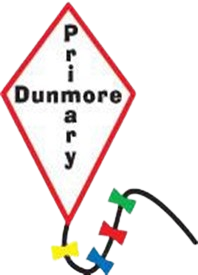How we identify, assess and review our children SEND
How we identify, assess and review our children with SEND
Most children and young people in mainstream schools will have their special educational needs and disabilities met through good classroom practice. This is called Quality First Teaching.
Early identification of need
A special educational need can be a number of different things. For example, a child may be having problems with reading, numbers or behaviour, which can be helped by putting extra support in at school and by working in partnership with parents. It may also be due to a disability which makes it harder for a child to use the same educational facilities that the school provides for the majority of children. For some children, this may be a temporary difficulty, while others may have a long-term need for special help.
Types of special educational needs can include
- General Learning Difficulties – children whose learning progresses at a slower pace
- Social and Emotional Difficulties
- Cognition and Learning Difficulties (difficulties with reading, writing and spelling or maths)
- Communication and Interaction Difficulties
- Speech and Language Difficulties
- Delays with gross or fine motor skills
- Other Physical or Medical Needs/Conditions
All of our children’s needs are identified and met as early as possible through
- Observation, assessment, target setting and monitoring arrangements (cycle of assess, plan, do and review)
- Listening to, and following up, parental concerns
- Listening to and taking into account the child’s views, wishes and feelings
- The analysis of data, including baseline assessments linked to the EYFS to track individual children’s progress over time
- Reviewing and improving staff understanding of a wide range of needs and effective strategies to meet those needs
- Liaison with schools and other settings on end of year transfer
- Exchanging information from other services across education, health, care and the voluntary sector
- Involving an external agency, where it is considered that a special educational need may be significant and long term and may require more in-depth and frequently reviewed cycles of “Assess, Plan, Do, Review”
- Data on progress is stored and analysed through the school tracking system. Pupils’ needs are discussed and decisions are taken as to which intervention is needed.
SEND Support
Teachers at Dunmore Primary School make regular reasonable adjustments to their daily practice in order to support as many children as possible. When these reasonable adjustments prove to be insufficient, then a decision may be made to add the child to the school’s SEND register and to implement a SEND Pupil Profile. At Dunmore Primary, we follow a graduated support approach, which is called “Assess, Plan, Do, Review”. This means that we will:
Assess a child’s special educational needs
Plan the provision to meet your child’s aspirations and agreed outcomes
Do put the provision in place to meet those outcomes
Review the support and progress
As part of this approach, every child with SEND will have an individualised SEND Pupil profile that describes the child’s needs, outcomes & provision to meet those needs. Parents/carers and child (where appropriate) views are integral to this process.
What We Offer
- Regular informal review meetings with children, parents and teachers, as necessary
- An open door policy for parents of SEND children.
- Gathering pupils' views
- Termly review meetings led by the class teacher with parents present. At this meeting, the focus is the child’s SEND pupil profile, where progress is measured, and new outcomes are agreed for the following term
- Consultations with the school’s SENDCO
A small percentage of children and young people with significant and/or complex needs may require an assessment that could lead to an Education, Health and Care Plan.
Having followed cycles of plan, do etc., if the gap is widening or not making progress or an identified need, we may seek a request for an EHCP. The school will provide the evidence about the child’s progress over time, documentation in relation to the child’s SEND and any action taken to deal with their needs, including any resources or special arrangements in place.
Children may be taken off the SEND register if they make progress or their needs change. This will always be discussed with the parents.
How we respond to parental concerns
We always encourage parents/carers to come in and discuss any concerns with us face to face. All parents/carers of children with SEND are invited three times a year, to come to school and speak to staff. We strive to ensure access to appropriate high quality teaching, differentiation and intervention for all of our SEND children. All planning is monitored by the SLT, books are collected frequently and learning walks take place regularly across the school to ensure high standards for all of our learners, including those with SEND.
